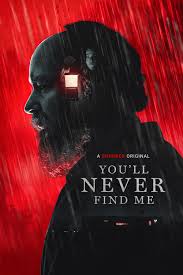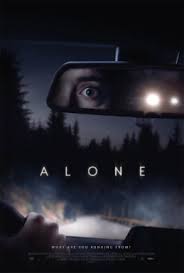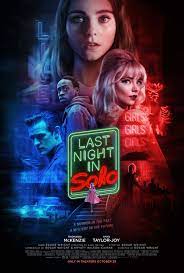
Welcome to a dark night of the soul. Even bad people have them.
In some nameless Australian trailer park, Patrick (Brendan Rock) sits in his living room drinking whiskey. Outside, there is thunder and lightning, just like the night Frankenstein’s creature woke up.
Patrick is alone, but not for long.
A wayward woman (Jordan Cowan), lost in the storm and soaked to the skin, pounds on his door seeking a telephone.
“You’ve knocked on the wrong door,” Patrick tells the shoeless visitor.
Of course, things are not that simple. The wrong door depends on who’s standing where.
You’ll Never Find Me, written and co-directed by Australian newcomer Indianna Bell, is an intricately constructed two-person play, featuring unexpected shifts in the power dynamic taking place over the course of a dark and stormy evening.
It’s Patrick’s house, and he’s obviously a formidable man who prefers solitude. A drenched woman with no shoes can’t possibly be a threat.
So why is he uneasy?
Patrick explains to her that feral kids living in the park routinely beat on his door and run away. Even at two in the morning during a violent storm?
That’s enough to drive anyone mad.
Gradually, Patrick warms up to his guest and promises to help her, but he’s also clearly suspicious about her point of origin. She claims she fells asleep at the beach.
“The beach?” Patrick wonders aloud, as if he’d never heard the word.
Viewers are left to puzzle and ponder the scant information provided by these mysterious players, as both sides continue to distract and interrogate the other while passing the time with a few hands of cards.
We can tell from the outset that Patrick is a (deservedly) haunted man, and as the tension in the trailer escalates, a very big decision about his future—the same one faced by Hamlet—becomes an unbearable burden.
With its single set, minimal action, and tiny, terrific cast, You’ll Never Find Me is a harrowing and claustrophobic watch, with revolving doors of trust and deception leading to the ultimate question: To be or not to be.
Original, highly rewarding, and vigorously recommended.










You must be logged in to post a comment.